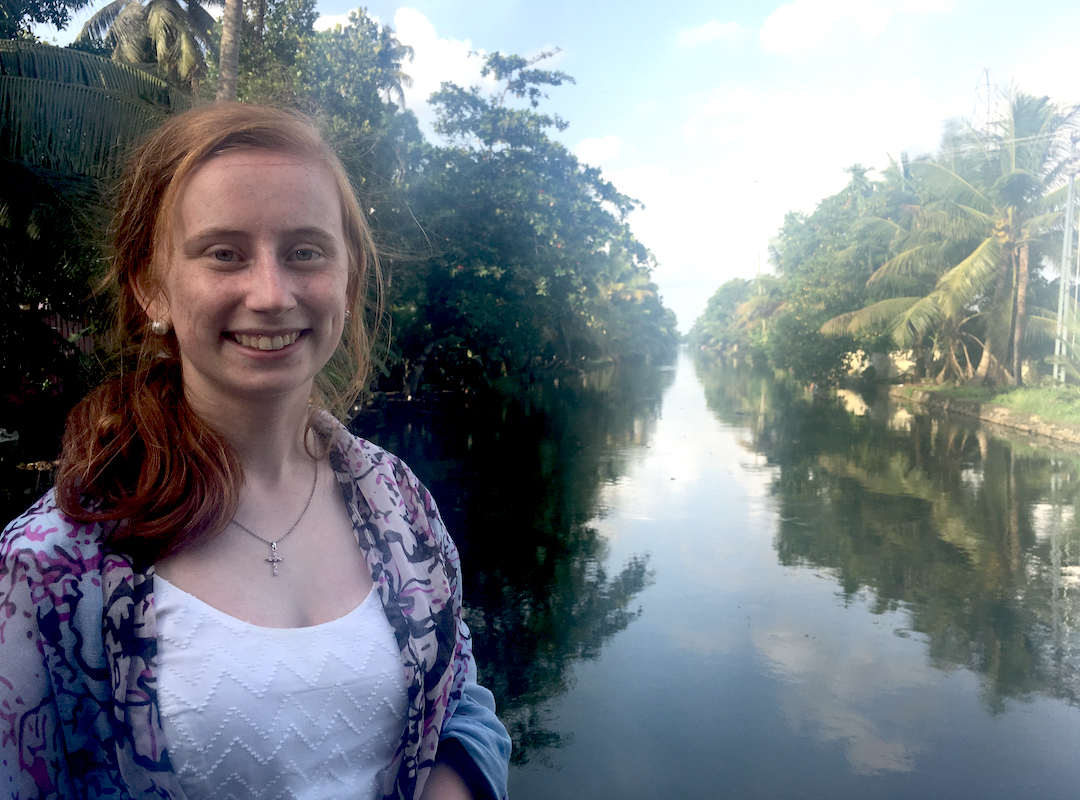
Caitlin Kwalwasser, Politics honors student and Legal Clinic intern, was among the graduating students who presented their theses to members of the Women's Center staff this spring.
Political Science as a discipline is deeply male-centric. The subfield of international relations in particular is a heavily masculine space. A lot of emphasis is placed on rational actor models, privileging a facade of universal objectivity and rationality. This approach hinged on the assumption of a default identity for state actors: white, male, heterosexual, and Western. Dominant international relations theory approaches to state conflict and violence categorically ignore the ways in which non-dominant groups' lived experiences can inform behavior.
The purpose of my thesis was to demonstrate the ways in which the socially constructed institutions of gender inform state behavior. Focusing specifically on the model of power-based violence and the nature of intimate partner violence (IPV), I sought to understand how dynamics of IPV manifest at the state level. Using a Foucauldian framework of power relations, we can begin to see how the gender hierarchy has permeated all levels of life, including the attitude and actions of the state apparatus. Specifically, methods of coercive diplomacy parallel the tactics of coercion and abuse employed by abusers to control their partner. While international relations theorists may initially conclude that coercive diplomatic tactics avoid hot conflict, the lens of IPV uncovers that coercive diplomacy directly contributes to the escalation of tension and instances of physical violence.
Advocates for survivors of IPV understand violence as cyclical. We call it the Cycle of Violence/Abuse to denote the ways in which tensions in an abusive relationship rise and fall.

The varying stages of the Cycle of Violence help us understand what behaviors indicate increased risk for the physical safety of the victim. By deploying similar tactics of abuse used by perpetrators under the guise of coercive diplomacy, states escalate closer to an outburst of hot conflict. One way to see the ways in which state violence and sexual violence are deeply intertwined is through examining incidences of wartime rape.
Wartime rape is a helpful lens through which we can examine the deep relationship between state violence and sexual violence. We are able to see the way in which rape occurs not just as a specific act of violence committed by perpetrators to specific individuals, but also as a collective mentality that emerges out of perceived dominance backed by systemic racism, sexism, heteronormativity, and classism.
Wartime rape serves as a helpful transitional bridge between the issues of micro and macro-level violence with which I am primarily concerned. Scholars of international relations theory unconsciously use defaulting, victim-based language to construct their arguments. Knowingly or not, they draw upon a culture of hierarchical power relations that inform and constitute their writing. Thomas Schelling’s persuasive work, Arms and Influence, uses victim-based language to discuss the mechanisms of coercion. He writes, “The victim has to know what is wanted, and he may have to be assured of what is not wanted. The pain and suffering have to appear contingent on his behavior…the prospect of certain death may stun him, but it gives him no choice.”1 The language here is startling. It is also interesting that Schelling gestures to the illusion of choice in discussing coercion’s underpinnings. It is not that the victim is actually given a choice, but rather he is meant to think that his behavior influences the likelihood that he will experience pain, but that in reality, the threat is so great that there is no choice, just a pattern of acceptable behavior.
Those familiar with the tactics of abuse will be unsurprised with the construction of Schelling’s argument. His conclusions about coercion come almost verbatim from the Power and Control Wheel, a graphic used by advocates to helpfully explain the methods and mechanics of manipulation and abuse in IPV.

While researching contemporary advocacy efforts, I drew heavily from my own experiences volunteering for the Shelter for Help in Emergency (SHE) in Charlottesville, serving as a peer educator for sexual violence prevention with the Culture for Respect Educators, and working as a Legal Clinic intern for the Maxine Platzer Lynne Women’s Center. I was inspired in particular by the training materials I received to volunteer for SHE’s 24-hr hotline along with some awesome recommendations from the staff at the Women’s Center. For a short guide on the basics of IPV and abuse, the Women’s Center’s website is incredibly useful.
One of my greatest fears in working on my thesis was reverting back to heteronormative constructions of abuse and IPV. In order to try and queer the approach I took to understanding IPV, I spent a lot of time focusing on the interlocking issues of race, class, and sexuality in addition to gender in understanding the manifestations of violence and power. The result was a piece that examined through the lens of intimate partner violence the way in which networks of power relations interlock in creating a unique brand of state sanctioned violence. One of the more shocking conclusions of my work was the sheer acceptability of abusive tactics in the international arena. Coercive diplomacy, economic exploitation, intimidation, and even sexual abuse are staples of international conflict that oftentimes falls short of full-scale war, which allows states to categorize these methods as peaceful. My hope was to challenge the acceptability of coercive diplomacy, and create a theoretical space from which state actors committed to violence prevention can rebuke tactics of abuse for what they are-- disguised brutality.
…………..
1Thomas C. Schelling, Arms and Influence (New Haven, CT: Yale University Press, 2008), 4.

